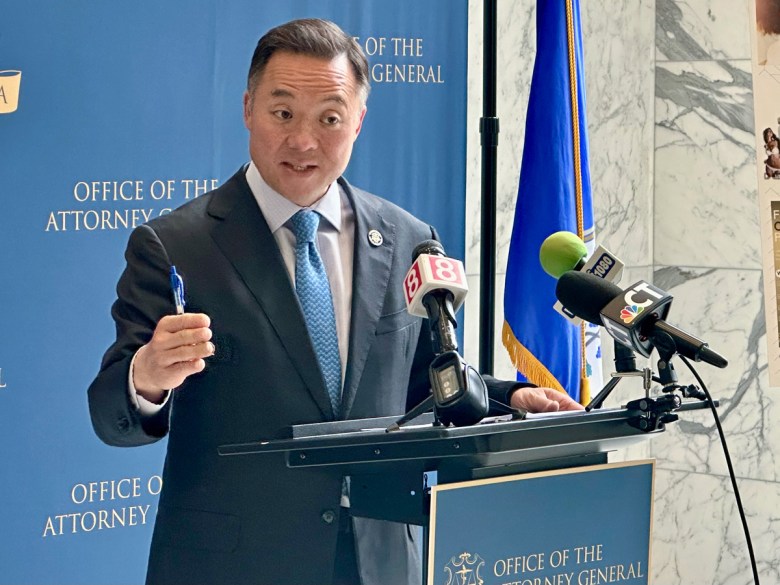HARTFORD, CT — Attorney General William Tong is co-leading a bipartisan coalition of 42 attorneys general in calling on Meta Platforms, Inc. (Meta) to protect people from fraudulent investment ads appearing on Facebook.
The fraudulent ads are luring users into pump-and-dump schemes that have led to thousands of people losing hundreds of millions of dollars, according to a statement from Tong’s office.
The New York Attorney General’s office received a report of an individual who engaged with a fraudulent Facebook ad, which claimed to be connected to a well-known investment management firm and lost over $100,000. In their
letter to Meta
, the coalition highlights the dangers of these ads and urges Meta to improve its process for reviewing ads before they appear on its platforms.
“With costs on the rise and wallets stretched, a lot of people are looking for ways to earn extra money. Do not be fooled by get-rich-quick schemes on social media,” Tong said. “We are seeing a proliferation of phony advertisements for investment scams that have resulted in major financial losses for people. Meta can and must review and remove these scams before anyone else is harmed.”
Tong urged all Facebook users in Connecticut to be alert for these ads and to do their homework before investing.
The fraudulent Facebook ads use images of well-known individuals, such as Warren Buffet, Cathie Wood, and Elon Musk, to draw in users. However, the groups who run the ads are not affiliated with those individuals. The ads often boast about stocks with incredibly high returns for investors and some even offer free “consultations” or investment advice, according to the statement. When users click on the ads, they are prompted to join a WhatsApp group, where they are targeted in a pump-and-dump scheme.
An investigator joined the fake investment tip WhatsApp group, and after joining the group the scammers called the investigator’s personal cell phone. The caller was not a native English speaker and appeared to use artificial intelligence to change her voice to sound like she had a British accent. Despite the British accent, the caller said she was in “Arkansas.” When asked to identify the capital of Arkansas, she was unable to do so.
In these pump-and-dump schemes, the scammers provide a series of recommendations to buy certain stocks. The prices of these stocks are then rapidly pumped up when they are purchased by the users. The fraudsters then profit from the price inflation by quickly selling, or “dumping” the securities at a high price, which in turn causes the prices to plummet. The new owner of the stocks typically loses a substantial part of their money when the security’s price falls. Pump-and-dump schemes are illegal and constitute securities fraud.
Despite Meta’s use of automated systems and occasional human review to remove fraudulent ads, fraudsters have consistently evaded these systems by frequently changing their ads, Tong said. Months after submitting scam reports to Meta, the New York Attorney General’s office continued to receive scam ads.
The coalition letter urges Meta to implement more robust preventative measures, such as enhanced advertiser diligence and meaningful human review of investment-related advertisements before they run. If Meta cannot effectively curb these harmful scams, the attorneys general urge Meta to cease running investment advertisements altogether.
Joining Attorney General Tong in issuing today’s letter are the attorneys general of Alaska, American Samoa, Arizona, Arkansas, California, Colorado, Delaware, Georgia, Hawai’i, Illinois, Indiana, Iowa, Kansas, Kentucky, Louisiana, Maine, Maryland, Massachusetts, Michigan, Nevada, New Hampshire, New Jersey, New Mexico, New York, North Carolina, North Dakota, Ohio, Oklahoma, Oregon, Pennsylvania, South Carolina, South Dakota, Utah, Vermont, Virginia, Virgin Islands, Washington, West Virginia, Wyoming, and the District of Columbia.
Attorney General William Tong, joined by Connecticut lawmakers, announced the introduction of House Bill 6857 on Monday in Hartford – a second bill that seeks to regulate the use of social media recommendation algorithms for minors.
HARTFORD, CT – Attorney General William Tong called recent changes to Instagram insufficient for protecting teenagers and demanded that the company take further steps to limit what he referred to as the “behavioral cocaine” that the social media company promotes.
Keep reading
A recent poll released by Issue One’s Council for Responsible Social Media and Fairplay shows near-universal support among U.S. voters for bipartisan legislation aimed at protecting children and teens from online harms. This poll comes at a crucial time when another whistleblower has testified before Congress about the detrimental effects of social media platforms like…
Keep reading
U.S. Sen. Richard Blumenthal is hoping that his bipartisan Kids Online Safety Act will get a boost from whistleblower testimony this week detailing allegations that Meta ignored warnings of the harm to teens posed by its social media platforms Facebook and Instagram.
HARTFORD, CT – Connecticut Attorney General William Tong joined a coalition of 44 attorneys general to pressure Facebook to abandon plans for a version of Instagram for children under the age of 13. The coalition of members of the National Association of Attorneys General sent a letter to Facebook CEO Mark Zuckerburg this week expressing…
Keep reading
There was bipartisan willingness during a Monday Finance Committee hearing to consider taxing the enormous advertising profits of social media companies. The legislature’s tax committee heard testimony on a bill proposed by Rep. Holly Cheeseman of East Lyme, the panel’s ranking Republican, to tax social media advertising revenues generated in Connecticut. The bill would require…
Keep reading








